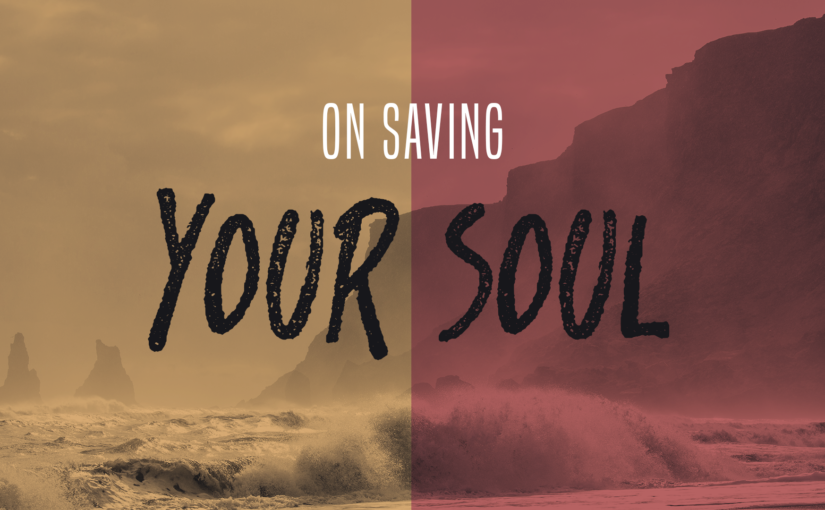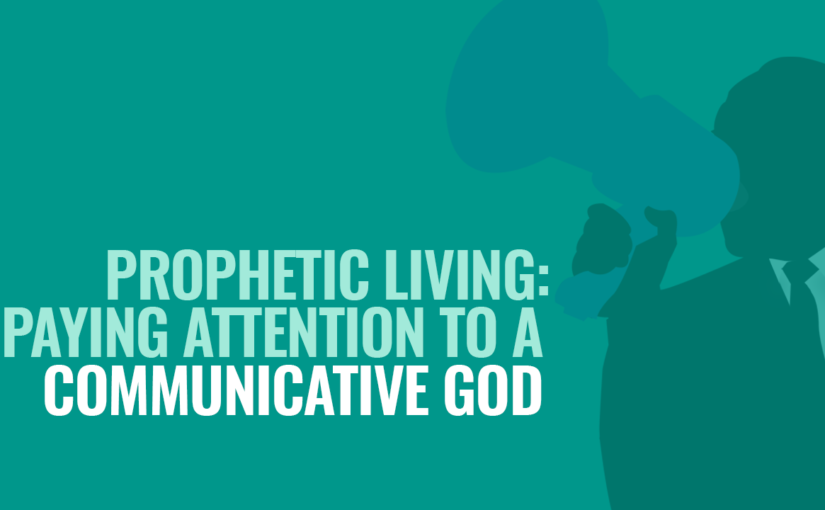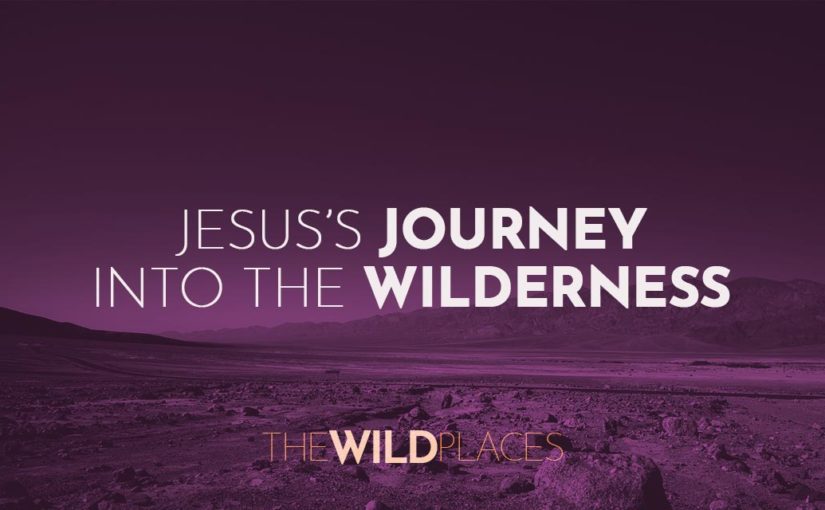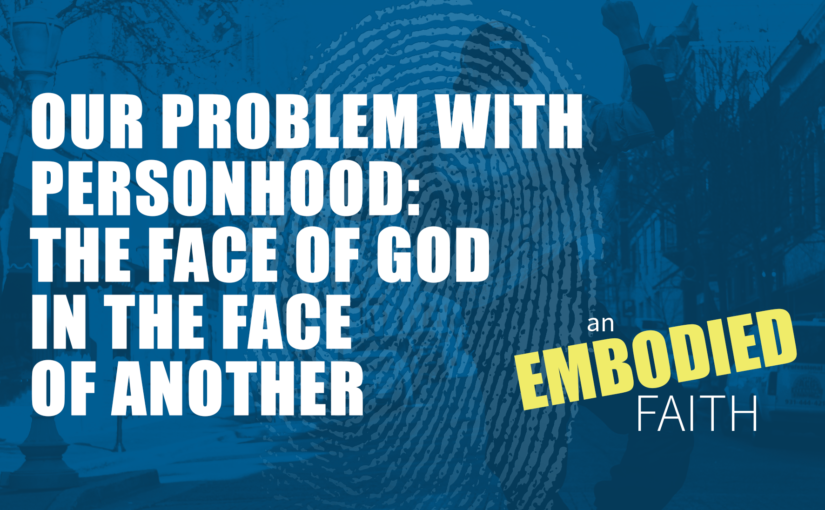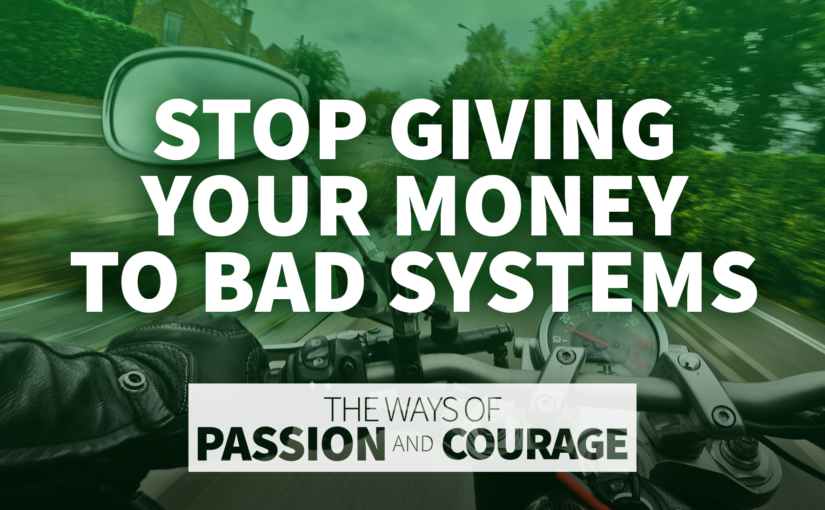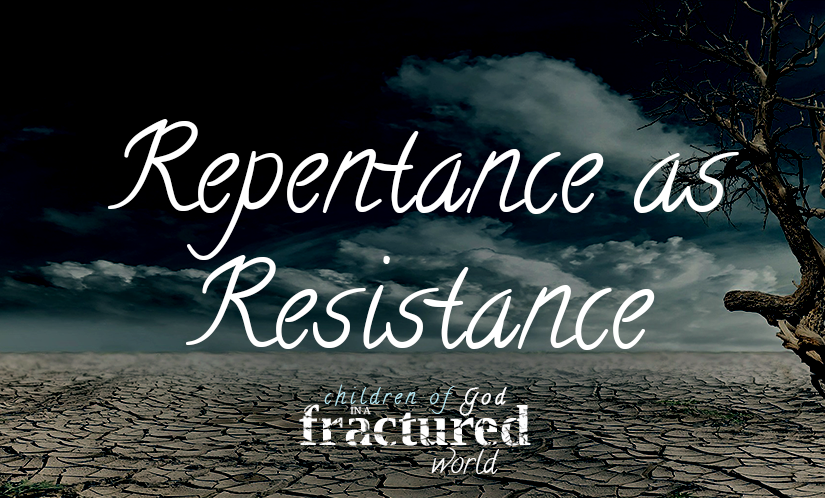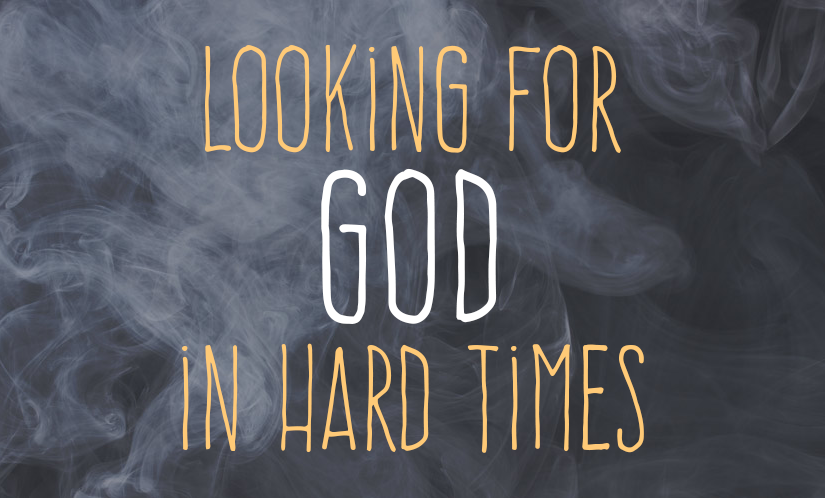This past week I had a phone call week with my eight-year old goddaughter. I got to speak to Mari because I’d been talking to her parents about the hard time she was having in school. There are these two other kids in her class who have been mean, and off and on last year and again this year, they’d been really aggressive with my her. My friends had called me to ask for some advice in dealing with the school, and then they’d given me a chance to talk with Mari too.
I thought she’d feel down and maybe I should remind Mari that she didn’t deserve this. So I asked my goddaughter: do you know how special you are? Do you know that God made you smart and fun and beautiful and important? And she said very matter-of-factly, “Yes, I do.” Duh? Of course, like these were the most obvious truths about herself.
And we talked a little more, but this was that moment that I couldn’t stop thinking about. Of course Mari knows she’s special and smart and beautiful and important. She has good parents who have told her that and shown her that a thousand times. No bit of bullying or classroom chaos was changing that today or tomorrow.
Of course Mari knows who she is. You and me, the grownups, we’re the ones that lose track of who we are.
Years ago, the psychologist Mary Pipher wrote Reviving Ophelia, a little book about adolescent girls, and how they take in pressure and criticism and all manner of jacked up stuff in society regarding girls and women, and they take those messages and that pain inward and shrink down as they lose track of who they are.
Thank God none of this is my goddaughter’s story yet, but in a way, it’s a lot of ours, I think.
I’ve been thinking about how we can lose track of ourselves, of our fundamental identities, and about the kind of inner work that grounds us and centers us, helps us be at peace and be at home no matter where we are or what we’re going through.
We’ve got two weeks left in our series On the Brink of Everything. And in the book by Parker Palmer that inspired this series, there are chapters about reaching out and about reaching in. Writing from his perspective as an 80-year old, Palmer has noticed that as we go through life, we can get more and more isolated, thus his call to keep reaching out. But we can also get more and more lost, thus his call to reach in. To keep asking: Who am I? And What can I do with my pain?
These questions have taken me to a particular place in the scriptures, to the big letter in the middle of the New Testament, the one called Romans.
I’ve been reading and reading about Romans a lot the past few years, and this fall, I’ve started studying this letter each week with a few of you. I’m leading a community group right out there in the lobby every Saturday morning from 9:30 to 11 – you’re all invited. There are many other community groups too, of course – they’re maybe the best things we have going at Reservoir, so I hope you can be part of one. I’m loving mine. In my group, each week we spend about half an hour connecting with one another and about an hour talking about a short section of this part of the Bible.
It’s been really fun so far, because if you didn’t grow up with much Bible in your life, Romans is confusing. But if you did grow up around the Bible, Romans was likely misused and weaponized – a religious handbook of who’s in, and who’s out with God, and how to get on the right side of that line. But as we’re reading Romans, we’re finding that it’s something else entirely.
The author named Paul was a Jewish rabbinical student who for a brief time zealously persecuted the early first century followers of Jesus before he became one himself. Then, for about 25 years, Paul became the leading ambassador for the story of Jesus – what he called the good news of Jesus – throughout the Roman empire, writing several letters during that time that eventually became part of our Bibles.
In Romans, he gets what for him is the very exciting opportunity to write to the little house church communities at the very heart of the empire, in what was then the largest city in the world, maybe the first ever million person city of Rome.
These Roman house churches were on the whole pretty marginalized people, for whom the questions, “Who am I?” And, “What do I do with my pain?” would have been really important.
Half of them were women. And as a woman, you couldn’t hold public office, you couldn’t vote. Your education would stop when she was young. You was the property of her father until you was married off as a teen, when you became the property of your husband, to whom you would be expected to be totally faithful, even though the same wasn’t expected of him.
Many of the Roman house church members were also Jews, a religious and ethnic minority in the city. They had been expelled from Rome a decade earlier, which tells you something about the kind of minority experience they lived. Resented, misunderstood, scapegoated.
And then of course many members of the Roman house churches were slaves. Children of parents who had large debts, or captives or immigrants from the edges of the empire, slaves were seen as less than fully human. Cut off from their cultures and religion and language and family, they worked without payment, they were raped with impunity. Their children, if they had them, could be taken from them and sold.
These were many of the people Paul addressed in this letter – people who knew pain, people who struggled to understand who they were now, and how they could be at home.
To these people, Paul wrote about what he called the gospel, or the good news of Jesus. Here’s just a little sampling of that.
Romans 8:15-17, 22-27, 35-39 (CEB)
15 You didn’t receive a spirit of slavery to lead you back again into fear, but you received a Spirit that shows you are adopted as his children. With this Spirit, we cry, “Abba, Father.” 16 The same Spirit agrees with our spirit, that we are God’s children. 17 But if we are children, we are also heirs. We are God’s heirs and fellow heirs with Christ, if we really suffer with him so that we can also be glorified with him.
22 We know that the whole creation is groaning together and suffering labor pains up until now. 23 And it’s not only the creation. We ourselves who have the Spirit as the first crop of the harvest also groan inside as we wait to be adopted and for our bodies to be set free. 24 We were saved in hope. If we see what we hope for, that isn’t hope. Who hopes for what they already see? 25 But if we hope for what we don’t see, we wait for it with patience.
26 In the same way, the Spirit comes to help our weakness. We don’t know what we should pray, but the Spirit himself pleads our case with unexpressed groans. 27 The one who searches hearts knows how the Spirit thinks, because he pleads for the saints, consistent with God’s will.
35 Who will separate us from Christ’s love? Will we be separated by trouble, or distress, or harassment, or famine, or nakedness, or danger, or sword? 36 As it is written,
We are being put to death all day long for your sake.
We are treated like sheep for slaughter.
37 But in all these things we win a sweeping victory through the one who loved us. 38 I’m convinced that nothing can separate us from God’s love in Christ Jesus our Lord: not death or life, not angels or rulers, not present things or future things, not powers 39 or height or depth, or any other thing that is created.
I’m sure you hear a lot of language of hope in these excerpts, but also a lot of reference to pain.
In Romans, Paul affirms our experience of this world and our lives as incomplete. Much of Romans is a book of lament – sadness and anger over the way things are today. Our violence, our judginess, our addictive compulsions toward what is not best for us, our human and societal divisions, our loss of connection to a beautiful, loving God.
Here, Paul calls our pain groans. Pains and sighs we can’t always even find words for. And the pain Paul alludes to isn’t just human pain but the pain of the whole earth. All of us, all the animal and plant species under threat, marine life gasping for oxygen, overmined mountains, deforested fields, spoiled soil all groaning and suffering, waiting for God to bring new life. Panting as if in labor for God’s new birth renewal.
The good news of Jesus doesn’t seem to first eliminate pain, but draw it out into the open, give it voice and yearning and direction.
I grew up being taught not to do this. I was taught, I think, that it wasn’t good to have pain. No one told me this, but it was taught me nevertheless.
My therapist asked me once, when you were sad as a kid who did you tell about it, and I told her nobody. For many years. My family was really nice in a lot of ways. My mom in particular. She made cookies and cake and comfort food. Once in high school, my dad could tell I was bummed out, and he let me cut school for a day so we could go to a chocolate shop together. (Is it clear yet how deep the roots of my sweet tooth run?) My dad wrote a note I could bring to school that said, Steven was excused from school. He was absent yesterday because he had a low grade fever. Get it, “low grade” fever? My dad still talks about that note, like it was the cleverest thing ever.
My parents were great in many ways, but there wasn’t a lot of space in our house to express pain.
I remember as a teenager, the first time I suffered a major ankle sprain. It was bad – we didn’t have great health insurance, maybe none, so there weren’t MRIs done or anything, but I heard that loud pop, and I was on crutches for weeks and weeks, I know I tore stuff in there. And I’d resprain that ankle again and again for years.
But when I got off the ground, yelping in pain, trying to hop inside to the couch from where I’d been playing basketball with my brother. And what I remember him saying is: what’s wrong with you? Why are you so sensitive? Cut it out.
It sounds kind of awful, but I might have done the exact same thing, if the tables had been turned.
My family knew about being stoic, about soldiering forward, but dealing with pain, not so much. So no surprise, there’s some family history of other channels for that pain – of addiction, of defensiveness, of lashing out, of being emotionally shut down – a lot of that one – but not so much history of talking about our pain.
We carry these habits of not dealing with our pain, don’t we?
The other day, Grace and I were talking about this thing that stresses us both out because it hurts, and I told her, you know that makes me really sad too. And she was like: you should tell me that sooner, because it feels kind of lonely when I’m the only one affected.
And I was like, you know me, I stuff my feelings down before I talk about them. Sorry, I’m working on it. I’ll get there one day.
And I will – I’ve been working on emotional intelligence, at noticing and dealing with my experiences for decades. I’ve been reaching in, as Parker Palmer would say – developing an inner life, trying to pay attention to my soul, for a long time because it’s good for me. It helps me have better relationships, more joy, a more fully alive existence in the world. It helps me get back more to that soulful place where my goddaughter Mari lives. That I know I have pain, but I’m seen and loved, and I’ll be OK.
But sometimes I worry about us all in this.
We live in such emotionally volatile, and emotionally stuffed down times. You may be aware that American life expectancy actually dropped a little recently, which hasn’t happened in ages. And there are a lot of reasons for that. Some of it is uneven public health and health care access in our country. But some of it is our opiod and suicide epidemics. We’re seeing people find powerful ways to deal with their pain, but ways that end lives and rip apart communities, rather than building us up and healing us.
Now I know there are a lot of factors that go into our suicide epidemic and our opiod epidemic. Personal stuff, systemic stuff, and as someone that volunteers in suicide prevention, as someone who like many of you, knows people who’ve been ravaged by drug addiction – I’m not going to pretend to explain these epidemics in this space. I’m certainly not going to stand here and cast shade on the victims, as if it’s all their fault.
But one part of the story, in both cases, is people without good ways to express and deal with pain. To numb out, or to just end life entirely, has become the most viable pain management tool for way too many of us.
Part of the good news of Jesus is to affirm that the way the world is ordered includes a fair bit of suffering. That the way humanity has ordered our lives and our world has compounded that suffering a fair bit.
In Romans, Paul is like: women, slaves, fellow Jews – God sees you. God hears you. God cares about your pain. God is angry alongside you, God too is impatient to birth new ways of life with you. Let’s do better.
The “you” in Romans is always plural. Paul is writing to communities, not just to individuals, inviting them to know and hold each other’s pain, to offer solace and comfort, to help one another.
When we bury our pain, when we numb it out, even when we just use our work and our phones to endlessly distract ourselves – which, let’s be real, is maybe the biggest way we’re all numbing out, losing our souls, avoiding inner work, by keeping so busy and so distracted that we’re rarely alone with our own thoughts. When we do this, we bury stuff alive, not dead.
And then it comes back at us.
We get consumed by bitterness and anger. Or we look for escapes. Men my age in particular, if we’re not doing inner work, processing pain, experiencing emotions, cultivating our souls, then most of us are addicted to porn or alcohol or something, or we’re doing something foolish like having an affair. That’s just the odds.
We need something better than this. We want to be fully alive, don’t we?
That takes noticing our pain, giving it expression, and giving it grace – accepting this part of life.
I do this through my daily examen – a prayer practice where in the morning or the evening, I think about and write down the best and worst parts of life that day. That helps me notice, helps me start to talk to God about those things, or respond to them.
I do this by learning to talk with my wife and some other friends about my fears and disappointments. In my weekly community group, one of the questions we ask every single week is either how could my life be better, or how do I need help?
God sees your pain, my friends – the big, big ones and the so called little ones too. Eve the stuff you wonder if it should be such a big deal; pain is pain. God hears your groaning, even the stuff you can’t put words to, Jesus and the Spirit of God turn that into prayer for you.
Your pain is part of the labor pains of all of creation, part of our shared yearning with God for something better in life. For the world that Jesus will co-create with us. So let’s notice our pain. Let’s take the time to tell God about it. Let’s, with people we trust, tell each other about it. And let’s hold our pain as gently and kindly as God does, with the hope that this is part of the process of renewal, not the end of the story.
And in our pain, I want to invite us to remember who we are. This is part of my goddaughter’s secret, I believe, to being fully alive even when life is hard. There’s no doubt in her mind where she belongs, with whom she belongs, and how much she is loved.
This too is the good news of Jesus – that God has called us adopted children. That as with all good adoptive parents, we never need to fear we’ll be rejected or sent back. We’re real children of God, able to speak freely and intimately, heirs to the freedom and blessing that God has for us.
Just as we can count on suffering as Jesus did, so we can count on the life and luminous victory we call glory. We’re God’s kids, the ones God enjoys and loves. Nobody and nothing can take that away from us.
This is who we are.
It’s hard for us to know where we are. In my house, we’re getting ready to send our first child out into the world, and I think about how at times when people in the past were apprenticed into careers, already married and having kids, our kids are still growing up and asking: Who am I? What should I become? We don’t know.
We’re transient too – we move a lot. And all this freedom is great, but it makes knowing who we are so much harder. We get disconnected from our roots, disconnected from our home communities, disconnected from the land and the places we know.
Again, the freedom of our age is great. But it disconnects a lot of us from the usual sources of telling us who we are – home communities, home land and place, home people and roots. Identity – knowing who we are – takes a lot of work.
We end up with a lot of not so great ways of answering these questions of identity. A lot of us find these pockets, these “tribes” people sometimes call them, of identity where we define ourselves by all the things we aren’t.
We’re the people who don’t watch that Fox News nonsense. Or we’re the people who aren’t getting brainwashed by the liberal media. A lot of that these days, right?
When I was growing up, part of my identity that I didn’t even realize at the time was that I wasn’t one of these people I would have thought as having a race or a culture. I was what I considered to be a normal American. You know, a white person, middle class, generations of roots in this country, ancestors long ago from these little places in Northern Europe where I’d never been.
There’s been a lot of reflection and study on this so-called White identity, or this illusion of White normalcy that people with my background often grow up with. Where people of color have a race or a culture, but you’re normal. Where foods that taste good get called ethnic foods, and your food is just food. As if all food isn’t ethnic, which just means from a culture.
This was part of my passive identity growing up, and if you think of yourself as normal, then you think of other people as abnormal. And that kind of white normalcy is a big part of the injustice and division we live with today. It’s not a great identity.
People in the first century had these issues too. There was Roman privilege and normalcy. Roman citizens thought of themselves as people, and people outside the empire as barbarians. There were identity constructs around women vs. men, slaves vs. free, Jew vs. Greek. In many ways, Romans is about dismantling these poor identity formation constructs, empowering people that have been diminished by them, encouraging others to set aside their privilege.
It’s about a better way of answering the question:Who am I? The good news of Jesus says a better way of answering that question for all of us is to say: I am a child of God.
All of me – the parts I show the world, and the parts I hide – all of me is a child of God. All of me – the parts I like, the parts I don’t, the joys and triumphs, the failings and the pain – all of me is a child of God.
I have a so-called race. I have roots. I have culture. I have language and habits and preferences and sex and gender and likes and disgusts and hopes and fears. And my identity needn’t be whether those things are common or not, whether they’re empowered or not. That’s not a great way to define myself, by status. No, but what is true is that all of me is seen and known by God. God loves me, God chooses me.
God loves you, God chooses you – not as somebody else, but as who you are today. God has said yes to you. God has adopted you. God listens to you. God would let you cut school, cut work when you’re struggling, take you to your favorite chocolate store. But God would turn to you too, and ask how are you doing? What’s on your mind? What’s in your heart? It’s gonna get better, you know. There’s a glory coming, a better day ahead. This is just the beginning, and beginnings are hard. But I’m here. I see you. No one can take you away from me. Nothing can make me stop loving you. You are my child.
This is the best way I know to find who we are. The healthiest way for us all too, that we’re God’s beloved children, placed in diverse communities of other children of God, there to learn to love and accept one another, and to birth God’s new creation together.
——————————-
Invitations to Whole Life Flourishing
Give pain good channels: pay attention to this symptom, give it expression, give it grace.
Spiritual Practice of the Week
Tell yourself and your friends all the stories about how all of you is God’s beloved child.


